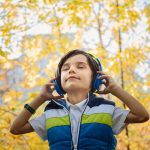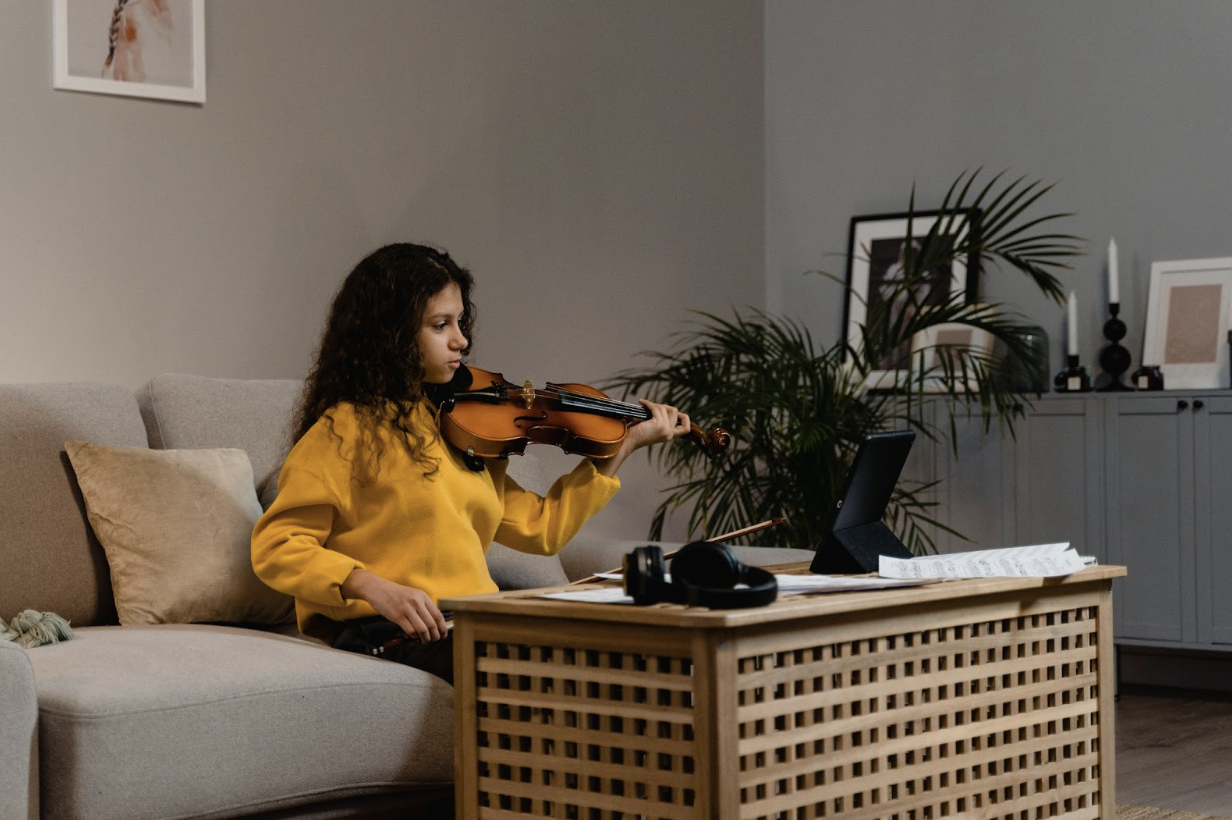The Benefits of Music Therapy for Autistic Children4 min read
It is commonly understood that music has the ability to affect us emotionally; it can relax us, energize us, move us to tears, and more.
Many therapeutic settings utilize the calming effects that certain types of music can have; spa and beauty treatments have the clear goal of creating enhanced feelings of relaxation in users, and soothing music is a common feature of its therapeutic benefits.
Music may be well-known for having a calming effect on us all, but this effect can be even more prominent in those with autism, particularly children. Children with more severe forms of autism can find it difficult to communicate, and are sometimes completely non-verbal. When teaching verbal communication skills, music can be used to help autistic children to express themselves.
Autistic children can develop a unique and helpful relationship to music that can benefit them in numerous ways.
Contents
Music and autism
There is a growing body of evidence that demonstrates a range of benefits that music provides for children with autism spectrum disorder (ASD).
Interestingly, while children with autism can be slower in developing verbal communication skills, they are typically as capable of understanding music as neurotypical children (those without ASD) – and in many cases, have heightened comprehension in this area.
ASD is called a spectrum disorder because the variations of autistic traits and challenges can differ considerably from person to person. That said, research shows that the benefits of music therapy appear consistent across the spectrum. While ASD is termed a disorder, and autistic people do experience social, cognitive, and communication deficits, they typically possess an enhanced ability to understand music, recognize pitch, memorize melodies, and more. Some autistic children have even become master pianists before being able to speak in full sentences.
The musical savant, Derk Paravicini, is a wonderful example of this. Blind and autistic, Paravicini wows audiences with his dazzling piano improvisations and melodic memory, and has amassed millions of views via his TedTalk and YouTube channel.
Paravicini recently featured in the launch of In Pursuit of Wellness, a BBC StoryWorks production in collaboration with the Global Wellness Institute. In one of the series’ episodes, Mydnstream (a platform dedicated to designing music for health and wellbeing) delivered a compelling exploration into the effects of music on neurodiversity. Through Myndstream’s pilot study with the Junior Genius School in Ireland, the results were clear – music as a therapy provides clear benefits for children with autism.
Music therapy in school settings
Research shows that music used in school settings can successfully improve the quality and quantity of responses in autistic children. During music lessons, or when music is being used as a therapeutic tool, kids with ASD respond more frequently and demonstrate increased motivation and enjoyment in expressing themselves and engaging with others.
It is widely considered by experts that one of the reasons music is so effective as a therapeutic tool for children with autism is because it represents a clear and calculable sound, facilitating the expression of emotions without the pressure of navigating the complexities of verbal communication. The enjoyment and performance of music can assist children with ASD in understanding and improving their cognitive coordination abilities, thus improving their ability to manage the range of messages, meanings, and interpretations involved in social communication.
Music therapy in practice
Focusing on improvisation is a common method for effectively incorporating music therapy into learning for autistic children. By teaching an autistic child how to use an instrument but then encouraging improvised performance, teachers and therapists give the children a safe way to build their confidence and self-expression without an overwhelming set of rules that can stifle their ability to engage, experiment, and express themselves.
Memorizing and repeating simple melodies and song lyrics are also commonly used to assist autistic children in developing their speech skills. In addition, soothing tunes, such as slow classical pieces, can successfully calm an autistic child, and through repeated use, having these pieces playing in the background regularly can help the child to regulate their mood and emotions more effectively.
The benefits of music therapy for autistic children
There are many benefits of using music therapy to assist autistic children. Improving communication skills not only benefits the individuals as they develop but can provide significant support to parents of autistic children looking for effective ways to engage them, communicate with them, and help them to regulate their emotions. The calming, positive effect that music therapy can have on an autistic child can also lead to decreased episodes of anxiety, meltdowns, and aggression.
Whether having music on in the background or actively engaging in music through dance, singing, or playing instruments, music is powerful in helping autistic children and their families, teachers, and friends. By improving engagement, communication, fine motor skills, emotional regulation, cognitive coordination, and more, music therapy can positively change the lives of autistic children and their families.





